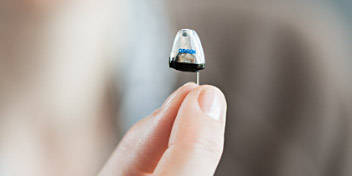Ringing in the ears is a symptom of tinnitus
Tinnitus is a condition which is related to hearing loss, but it can have many causes, including exposure to loud noise, aging, ear infections, and injury. Ringing in the ears is a symptom of tinnitus, and it is a result of your brain trying to compensate for the loss of hair cells in your ear. Tinnitus can also be experienced as a hissing, roaring, or buzzing sound.
Tinnitus affects about 15% of the population. For some people, it can have a severe impact on their daily life, and it can cause anxiety, stress, anger, and sleep problems.
Our brief online tinnitus quiz can help you understand if you have tinnitus symptoms (such as ringing in the ears) and/or hearing loss. The two conditions are often experienced simultaneously.






